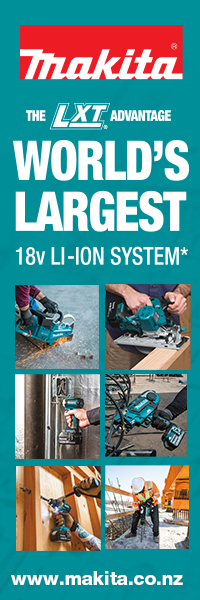Training Report Card
18 January 2023
 A report from the Waihanga Ara Rau Workforce Development Council makes a number of recommendations for improvement to the current plumbing, gasfitting and drainlaying training model.
A report from the Waihanga Ara Rau Workforce Development Council makes a number of recommendations for improvement to the current plumbing, gasfitting and drainlaying training model.
A perfect storm has caused unacceptable delays to PGD apprenticeship timeframes, with apprentices currently taking six-and-a-half years to complete a five-year apprenticeship. This, at a time when plumbing businesses are crying out for skilled tradespeople to bolster their teams and help meet heavy workload demands.
The transition of The Skills Organisation into Te Pūkenga in October 2022 under RoVE reforms, coupled with Covid-19 disruptions to block course training and a 200% increase in new apprentices since 2020, without equal investment into training facilities and tutors, have combined to create a dissatisfactory situation for apprentices, plumbing companies and the general public that use their services.
When members of the industry approached the Waihanga Ara Rau Infrastructure and Construction Workforce Development Council (WDC) to voice their concerns, the WDC decided to establish a baseline picture of the current Level 4 training environment by interviewing training providers, employers and apprentices across New Zealand.
 The resulting report takes a constructive approach, making recommendations where common themes and issues have been identified. It is up to the industry to take ownership and lead the way forward, notes the WDC.
The resulting report takes a constructive approach, making recommendations where common themes and issues have been identified. It is up to the industry to take ownership and lead the way forward, notes the WDC.
Short-term recommendations focus on addressing the immediate issue of ensuring apprentices complete on time. Longer term, the focus is on ensuring a flexible and ‘transformational’ training environment.
All recommended actions in the report have been agreed to by the recently formed PGD Strategic Reference Group, chaired by Master Plumbers CEO Greg Wallace. The next step is to implement a project team to work through the priorities.
Short term recommendations
- Year 3 and 4 apprentices to be given priority for block course completion. A schedule of open block courses to be made available for apprentices to book with the provider of choice from selected providers who are able to meet demand. They will need support from their employers if they are to move out of their region for a block course. Additional support will need to be put in place to work with affected apprentices.
- Apprentices to be given the opportunity to gather evidence within the workplace, have it verified and signed off by approved assessors for practical tasks. This workplace-based assessment relies on identifying approved assessors and ensuring apprentices have the chance to gain exposure to the required tasks in their workplace. Apprentices will then not need to attend the respective block course.
- Theoretical components to be opened up to apprentices undertaking workplace-based assessment, so learning can occur in the workplace and assessments can be submitted to an approved assessor for marking.
Long term recommendations
- There has already been a review of PDG training and a new delivery model for Version 3 was released at the beginning of 2022. However, this needs to be reviewed to ensure the model is fit for purpose, can cope with the increased demands, and includes workplace-based assessment.
- The eLearning material for Version 3 to be fully completed by the end of 2022, financed by The Skills Organisation on behalf of, and in consultation with, industry.
- The Learning Management System (LMS) platform for the eLearning material needs to be finalised as soon as possible to prevent the need for redevelopment of the learning content should this need to change in the future. It also allows for the platform to be further developed to allow access from learners, employers, facilitators, and assessors to the learner journey.
- All remaining apprentices on Version 2 should be transitioned over to Version 3 as of 1 January 2023. The exception will be apprentices on the short-term recommendation pathway (see above).
- Block courses no longer to be cohort based. Apprentices and their employers should have the opportunity to book into a scheduled block course at a provider and date that suits.
- Block courses to be subject based, and contain both tuition and assessment, supported by evidence of undertaking tasks in the workplace.
- Practical unit standards to be reviewed to ensure they are achievable in a work-based environment. It has been suggested that some unit standards contain range statements that are unachievable in the workplace.
- All providers offering PDG programmes to transition to the unified Version 3 Level 4 programmes as of 1 January 2023. This includes those providers that are currently offering curriculumbased programmes. This will align all training and potentially open up additional capacity within the system.
- The industry to investigate the opportunity to set up dedicated Centres of Excellence (potentially three) for PDG training and to introduce a final capstone practical examination. This would ensure dedicated facilities with quality, up-to-date equipment, and dedicated educators with the appropriate qualifications and support to deliver and assess quality outcomes for the industry. Any capstone assessment would need to be worked through with the PGD Board and Waihanga Ara Rau.















































